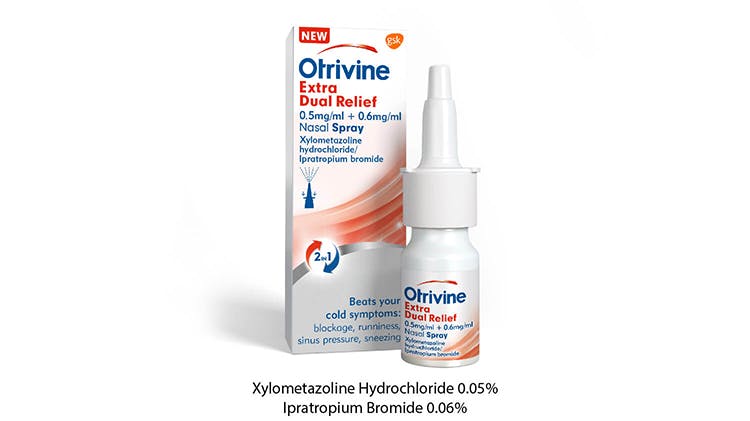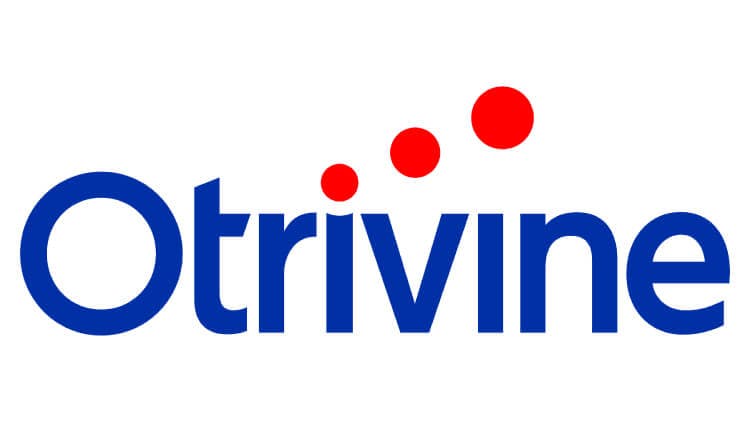Cold and Flu

Many patients may have misconceptions about the duration of a cold or flu1
Many patients underestimate the duration of a cold or flu. The worst cold & flu symptoms should be over in 4-5 days but complete recovery can take up to 10 days, and sometimes longer.1

Adults experience an average of 2-4 colds a year2
- The common cold is the conventional term used to describe a mild, self-limited, viral, upper respiratory tract infection.
- It is characterised by nasal stuffiness and discharge, sneezing, sore throat and cough.
- There is no cure for the common cold, and no medication is licensed to shorten the duration of infection.2 Treatment is therefore aimed at symptomatic relief.
- The Common Cold is a self-treatable condition and advice can be sought from pharmacists to help reduce pressure on local GP services.
-
Symptoms
Symptoms of the common cold
- Congestion caused by an immune response to the cold virus leading to swelling of nasal blood vessels3
- Rhinorrhoea (runny nose) due to parasympathetic activity stimulating submucosal glands of the nasal mucosa to produce excessive nasal secretions4
- Sneezing, which often accompanies rhinorrhoea and is thought to occur due to the stimulation of sensory nerve endings in the mucous membrane
- Sinus pressure, caused by a swelling of the sinuses which may lead to a blocked nose, pain and tenderness5
- Fever6
- Chills6
- Sore throat6
- Headache6
-
When to refer
When to refer patients with a cold or flu symptoms to the GP
It is important to highlight to customers that you are able to offer cold & flu advice and product recommendations to help reduce the number of unnecessary GP appointments. There are times when customers will need to be referred to the doctor such as:7
- Prolonged or recurrent symptoms, especially cough.
- Infections resulting in exacerbation of chronic respiratory symptoms (asthma or COPD)
- Suspected dehydration
- High-grade fever
- Young infants and the elderly
- A cough that persists for greater than 3 weeks or is concomitant with breathing difficulties, wheezing, pain on inspiration or blood in the sputum or a persistent nocturnal cough (particularly in children)
-
Antibiotics advice
![Keep Antibiotics working image]()
Antibiotics are ineffective for cold & flu viruses1
Patients seeking antibiotics for their cold & flu symptoms may require supportive education around self-treatable conditions and self-care practice.1 Self-care advice from NICE details:8
- Explain that symptom relief and rest are the most appropriate management
- Advise that antibiotics and antihistamines are ineffective and may cause adverse effects
- Adequate fluid should be taken during the course of the illness
- Healthy food is recommended although no specific diet or mineral or vitamin supplementation is necessary
- Adequate rest is advised however it is not necessary to stay off work or school and normal activity will not prolong the illness
- Transmission cannot be completely prevented but basic good hygiene can help prevent the spread: wash hands frequently with soap and hot water
-
Treatment
-
Product information – Otrivine Extra Dual Relief Nasal Spray
Otrivine Extra Dual Relief 0.5 mg/ml + 0.6 mg/ml nasal spray, solution (xylometazoline hydrochloride, ipratropium bromide).
Indications: Symptomatic treatment of nasal congestion and rhinorrhea in connection with common colds.
Dosage: Adults: 1 puff in each nostril, up to 3 times daily, with at least 6 hours between doses. Maximum 3 applications daily into each nostril. Do not exceed the stated dose. Do not use for longer than 7 days. Geriatrics: Limited experience of use in patients above 70 years of age.
Contraindications: Children and adolescents under 18 years. Known hypersensitivity to xylometazoline hydrochloride, ipratropium bromide, any of the excipients, atropine or atropine-like substances. Patients with glaucoma, rhinitis sicca, atrophic rhinitis or following trans-sphenoidal hypophysectomy or surgery exposing the dura mater.
Warnings and precautions: Use with caution in people with: hypertension, cardiovascular disease, long QT syndrome, hyperthyroidism, diabetes mellitus, prostatic hypertrophy, bladder stenosis, pheochromocytoma, on monoamine oxidase inhibitors treatment or tri/tetra cyclic antidepressants (or have been on either within the last two weeks), on beta 2-agonist treatment, cystic fibrosis. Use with caution in patients predisposed to angle closure glaucoma, epistaxis or paralytic ileus. Immediate hypersensitivity including urticaria, angioedema and rash may occur. Caution in people sensitive to adrenergic substances. Avoid contact with eyes.
Side effects: See SPC for full details. Very common: epistaxis. Common: dysgeusia, rhinalgia, nasal congestion, headache, nasal dryness, nasal discomfort, nausea, application site burn, dizziness, throat irritation, dry throat, dry mouth. Uncommon: insomnia, parosmia, tremor, eye irritation, dry eye, palpitations, tachycardia, nasal ulcer, sneezing, dyspepsia, fatigue, corneal oedema, cough.
Price: £6.66 (ex. VAT)
Legal Status: P.
Licence Number: PL 15545/0002.
Licence Holder: Haleon Ireland Dungarvan Limited, Knockbrack, Dungarvan, County Waterford, Ireland.
Date of revision: December 2024
-
Product Information – Cold and Flu Nurse Capsules
Haleon Cold and Flu Nurse All in One 500mg/100mg/6.1mg Capsules, hard (paracetamol, guaifenesin, phenylephrine hydrochloride).
Indications: Relief of symptoms associated with colds and flu and the pain and congestion of sinusitis, including aches and pains, headache, blocked nose and sore throat, chills, lowering of temperature, and loosening stubborn mucous to relieve chesty coughs.
Dosage: Adults, the elderly and children aged 16 years and over: Two capsules every four hours as required. Maximum 8 capsules (4 doses) in any 24-hour period. Do not take continuously for more than 5 days without medical advice.
Contraindications: Known hypersensitivity to any of the ingredients. Concomitant use of other sympathomimetic decongestants. Phaeochromocytoma. Closed angle glaucoma. Hepatic or severe renal impairment, hypertension, hyperthyroidism, an enlargement of the prostate gland, diabetes, heart disease or those taking tricyclic antidepressants or beta-blocking drugs and those patients who are taking MAOI or have taken within the last two weeks.
Warnings and precautions: Contains paracetamol. Concomitant use of other paracetamol-containing products or use of other cold and cough medicines, including cough suppressants and sympathomimetics (decongestants, appetite suppressants and amphetamine-like psychostimulants), should be avoided. Medical advice should be sought before use in patients with occlusive vascular disease, glutathione depletion due to metabolic deficiencies, chronic cough such as occurs with smoking, asthma, chronic bronchitis or emphysema. Use in caution in patients taking digoxin, cardiac glycosides and vasoconstrictor agents such as ergot alkaloids.
Side effects: See SPC for full details. Hypersensitivity reactions including skin rashes, urticaria, allergic dermatitis, angioedema, and anaphylaxis. Bronchospasm, hepatic dysfunction, thrombocytopenia, agranulocytosis and acute pancreatitis. Nervousness, irritability, restlessness, excitability, headache, dizziness, insomnia, increased blood pressure, nausea, vomiting, abdominal discomfort, diarrhoea, dysuria and urinary retention. Tachycardia, palpitations, dyspnoea.
Legal category: GSL.
Product licence number: PL 44673/0019.
MAH: Haleon UK Trading Limited, The Heights, Weybridge, Surrey, KT13 0NY, UK.
RRP (excl. VAT): 8’s, £3.18, 16’s, £4.80.
Text prepared: August 2023.
-
Product Information – Night Nurse Liquid and Capsules
Night Nurse / Night Nurse Capsules (paracetamol, promethazine hydrochloride, dextromethorphan hydrobromide).
Indications: Symptomatic relief of colds, chills and influenza at night.
Dosage: Adults and children 16 years and over: 20 ml or 2 capsules before bed. Maximum daily dose: Only one dose should be taken per night. Allow at least four hours between taking any paracetamol-containing product and this product. Do not take if you have already taken 4 doses of a paracetamol containing product during the day. Max duration of use is 3 days. Not to be given to children under 16 years except on medical advice.
Contraindications: Hypersensitivity to the active ingredients or any of the excipients. Patients with or at risk of developing respiratory failure and patients taking or have taken monoamine oxidase inhibitors (MAOIs) in the last two weeks.
Warnings and precautions: Contains paracetamol. Avoid use of other antihistamine-, paracetamol- and decongestant-containing preparations, including topical and cough and cold medicines. Medical advice must be sought for patients with severe hepatic or renal impairment, chronic or persistent cough, cough accompanied by excessive secretions, depleted glutathione levels due to metabolic insufficiencies, narrow angle glaucoma, cardiovascular problems, prostatic hypertrophy, urinary retention, epilepsy. Also seek medical advice for those taking tricyclic antidepressants, selective serotonin reuptake inhibitors, CNS depressants and anticholinergics. Use with caution in elderly. Patients with rare hereditary problems of galactose intolerance, the Lapp lactase deficiency (Night Nurse Capsules only) or glucose-galactose malabsorption should not take this medicine. Avoid alcohol. Prolonged use may lead to addiction, even at therapeutic doses. Cases of dextromethorphan abuse and dependence have been reported. Concomitant use with serotonergic agents can result in serotonergic effects, including serotonin syndrome, which should trigger discontinuation of the product. Caution should be exercised in patients who are slow metabolizers of CYP2D6 or use CYP2D6 inhibitors. Medical advice should be sought if symptoms persist, or are accompanied by high fever, skin rash or persistent headache. May cause urine pregnancy tests to produce false results. Liquid only: Contains 18% v/v ethanol per dose - Harmful for those suffering from alcoholism. Contains12.8g glucose and 3mg sodium per dose - Caution must be taken in patients with diabetes mellitus and those who are on a low sodium diet.
Side effects: See SPC for full details. Hypersensitivity reactions including anaphylaxis and skin reactions, such as skin rashes, angioedema, SJS, drug dependence and drug withdrawal syndrome, serotonin syndrome, blood dyscrasias, bronchospasm, hepatic dysfunction, gastrointestinal disturbance, nausea, vomiting, abdominal discomfort, drowsiness and dizziness, confusion, paradoxical excitation, psychomotor impairment, disturbance in attention, headache, dry mouth, eye disorders, blurred vision, urinary retention.
Legal category: P.
Product licence number: PL 44673/0070, 0071
MAH: Haleon UK Trading Limited, The Heights, Weybridge, Surrey, KT13 0NY, U.K.
RRP (excl. VAT): Liquid: £8.13. Capsules: £5.42
Text prepared: Jan 2024.
-
Product Information – Haleon Day Nurse Tablets
Haleon Day Nurse 500 mg / 30 mg Film-Coated Tablets (paracetamol, pseudoephedrine hydrochloride).
Indications: Symptomatic relief of nasal congestion when combined with fever and/or pain such as, sore throat, sinus pain or headache in the common cold or influenza.
Dosage and administration: The tablets should be taken with water. Minimum interval 4 hours between doses. Max 3 doses per 24 hours. Adults, incl. elderly: Two tablets up to three times daily as required. Adolescents 16-18 years old: One to two tablets up to three times daily as required. Adolescents 12-15 years old: One tablet up to three times daily as required. Do not use for more than 5 days.
Contraindications: Hypersensitivity to paracetamol, pseudoephedrine or any of the excipients. Use by patients taking other sympathomimetics (such as decongestants, tricyclic antidepressants, appetite suppressants and amphetamine-like psychostimulants), beta-blockers, moclobemide or monoamine oxidase inhibitors (MAOIs) or for two weeks after stopping the MAOI drug. Use with oxazolidinone class of antibiotics (including furazolidone and linezolid) or by patients with the following conditions: Hypertension, Cardiovascular disease, Hyperthyroidism, Prostatic hypertrophy, Glaucoma, Severe renal impairment (GFR<30mL/min). Use by children under 12 years of age.
Warnings and Precautions: Do not use with any other paracetamol-containing products and avoid use with other cold and flu medicines. Use with caution in patients over 60 years old, those with hepatic impairment or mild to moderate renal impairment, glutathione depletion due to metabolic deficiencies, psychosis, diabetes mellitus, arrhythmias or phaeochromocytoma, and in patients taking antihypertensives or vasoconstrictive agents such as ergot alkaloids. The hazard of overdose is greater in those with non-cirrhotic alcoholic liver disease. There have been reports of ischaemic colitis with pseudoephedrine, discontinue immediately if symptoms develop. Rare cases of posterior reversible encephalopathy (PRES) /reversible cerebral vasoconstriction syndrome (RCVS) reported with sympathomimetic drugs, discontinue immediately if symptoms develop. Severe skin reactions such as acute generalized exanthematous pustulosis (AGEP) may occur. Monitor patients, if symptoms such as pyrexia, erythema, or many small pustules occur, discontinue and take appropriate measures. Cases of ischaemic optic neuropathy have been reported, discontinue if sudden loss of vision or decreased visual acuity occurs. Use with care in patients undergoing general anaesthesia, due to risk of acute perioperative hypertension when used with volatile halogenated anaesthetics. Stop 24 hours before anesthesia. may result in a positive reaction during antidoping control tests. Caution is advised if paracetamol is administered concomitantly with flucloxacillin due to increased risk of high anion gap metabolic acidosis. Risk of hepatotoxicity with paracetamol doses in therapeutic range when one or more risk factor also present (see SPC for list). Use with caution with drugs that induce hepatic enzymes and in conditions which may predispose to glutathione deficiency.
Side effects: Please refer to the SPC for full details. Common: Nervousness, insomnia, dizziness, drymouth, nausea, vomiting.
Legal category and RRP (excl. VAT): P: £7.08
Product licence number: PL 15545/0011.
Product licence holder: Haleon Ireland Dungarvan Limited, Knockbrack, Dungarvan, County Waterford, Ireland.
Text prepared: December 2024.
-
Product Information – Beechams Max Strength All-In-One Capsules
Beechams Max Strength All in One Capsules, hard (paracetamol, guaifenesin, phenylephrine hydrochloride).
Indications: Relief of symptoms associated with colds and flu and the pain and congestion of sinusitis, including aches and pains, headache, blocked nose and sore throat, chills, lowering of temperature, and loosening stubborn mucous to relieve chesty coughs.
Dosage: Adults, the elderly and children aged 16 years and over: Two capsules every four hours as required. Maximum 8 capsules (4 doses) in any 24 hour period. Do not take continuously for more than 5 days without medical advice.
Contraindications: Known hypersensitivity to any of the ingredients. Concomitant use of other sympathomimetic decongestants. Phaeochromocytoma. Closed angle glaucoma. Hepatic or severe renal impairment, hypertension, hyperthyroidism, an enlargement of the prostate gland, diabetes, heart disease or those taking tricyclic antidepressants or beta-blocking drugs and those patients who are taking MAOI or have taken within the last two weeks.
Warnings and precautions: Contains paracetamol. Concomitant use of other paracetamol-containing products or use of other cold and cough medicines, including cough suppressants and sympathomimetics (decongestants, appetite suppressants and amphetamine-like psychostimulants), should be avoided. Medical advice should be sought before use in patients with occlusive vascular disease, glutathione depletion due to metabolic deficiencies, chronic cough such as occurs with smoking, asthma, chronic bronchitis or emphysema. Use in caution in patients taking digoxin, cardiac glycosides and vasoconstrictor agents such as ergot alkaloids.
Side effects: See SPC for full details. Hypersensitivity reactions including skin rashes, urticaria, allergic dermatitis, angioedema, and anaphylaxis. Bronchospasm, hepatic dysfunction, thrombocytopenia, agranulocytosis and acute pancreatitis. Nervousness, irritability, restlessness, excitability, headache, dizziness, insomnia, increased blood pressure, nausea, vomiting, abdominal discomfort, diarrhoea, dysuria and urinary retention. Tachycardia, palpitations, dyspnoea.
Legal category: GSL.
Product licence number: PL 44673/0019.
MAH: Haleon UK Trading Limited, The Heights, Weybridge, Surrey, KT13 0NY, UK.
RRP (excl. VAT): 8’s, £3.18, 16’s, £4.80.
Text prepared: August 2023.
-
Product Information - Robitussin Chesty Cough Medicine
Robitussin Chesty Cough Medicine. (Guaifenesin)
Indications: Expectorant for the treatment of coughs.
Dosage: Adults, the elderly and children over 12 years: One 10ml measure up to four times daily.
Contraindications: Hypersensitivity to any of the ingredients. Use in children under 12 years.
Warnings and precautions: Should not be used with other cough and cold medicines. Patients should consult a doctor if suffering from a chronic cough, exclude causes of chronic cough if symptoms are persistent. Treat any accompanying symptoms. If the cough lasts more than 7 days, comes back or is accompanied by a fever, rash or persistent headache, stop use and speak to a healthcare professional. Contains sorbitol and maltitol, those with rare hereditary problems of fructose intolerance should not take this product. This medicine contains 242 mg ethanol in each 10ml dose (2.3% w/v), take into account in pregnant or breast-feeding women and high-risk groups. Contains 12 mg sodium benzoate, 15.2 mg propylene glycol and 23.9 mg sodium per 10ml dose. Contains 2675 mg sorbitol per dose which may cause gastrointestinal discomfort or a mild laxative effect.
Side effects: Hypersensitivity reactions, anaphylactic reactions, angioedema, dyspnoea, nausea, vomiting, abdominal discomfort, urticaria and rash.
Legal category: GSL.
Product licence number: PL 44673/0206
MAH: Haleon UK Trading Limited, The Heights, Weybridge, Surrey, KT13 0NY, U.K.
RRP (excl. VAT): 100ml £4.58. 250ml £7.50.
Text prepared: September 2024
-
Product Information - Robitussin Dry Cough Medicine
Robitussin Dry Cough Medicine. (Dextromethorphan hydrobromide).
Indications: For the relief of persistent dry irritant coughs.
Dosage: Adults, the elderly and children over 12 years: One 10 ml measure up to four times daily.
Contraindications: Hypersensitivity to any of the ingredients. Use of selective serotonin reuptake inhibitor (SSRI), or other medication for Parkinson's disease, depression, psychiatric, or emotional conditions. Do not use if you are taking, or have taken in the past two weeks, monoamine oxidase inhibitors (MAOIs). Use in children under 12 years. Patients with, or at risk of developing, respiratory failure.
Warnings and precautions: Should not be used with other cough or cold medicines and use with alcohol should be avoided. Patients suffering from chronic cough as occurs with smoking, asthma or patients suffering from an acute asthma attack, chronic bronchitis, and emphysema or where cough is accompanied by excessive secretion should be advised to consult a Healthcare Professional before use. Exclude causes of chronic cough if symptoms are persistent. Investigate/treat any accompanying symptoms appropriately. Stop use and seek medical advice if the cough lasts more than 7 days, comes back or is accompanied by a fever, rash or persistent headache. Seek medical advice before use in patients with severe renal impairment. Cases of dextromethorphan abuse and dependence have been reported. Caution is particularly recommended for adolescents and young adults as well as in patients with a history of drug abuse or psychoactive substances. Caution in patients who are slow metabolizers of CYP2D6 or use CYP2D6 inhibitors as they may experience exaggerated and/or prolonged effects. Contains sorbitol and maltitol: Patients with rare hereditary problems of fructose intolerance should not take this medicine. Contains 23mg sodium and 12mg sodium benzoate per 10 ml dose. Contains amaranth (E123), which may cause allergic reactions. Contains 219.3mg ethanol per 10 ml dose, which should be taken into account in pregnant or breast-feeding women or in high-risk groups. Contains 2094mg sorbitol per 10 ml dose, which may cause gastrointestinal discomfort and mild laxative effect. Serotonergic effects have been reported following concomitant administration of SSRIs, MAOIs and CYP2D6 inhibitors, and if suspected, treatment should be discontinued.
Side effects: Hypersensitivity, gastrointestinal upset, nausea, vomiting, abdominal discomfort, dizziness, drowsiness, mental confusion, drug dependence, allergic skin reactions and drug withdrawal syndrome.
Legal category: P.
Product licence number: PL 44673/0207.
MAH: Haleon UK Trading Limited, The Heights, Weybridge, Surrey, KT13 0NY, U.K.
RRP (excl. VAT): 100ml £4.58. 200 ml £7.50
Text prepared: November 2024
Help your customers find relief for their cold and flu

Otrivine Extra Dual Relief Nasal Spray
Find out about the pharmacy-only Otrivine Extra Dual Relief


Nurses product range
Find out how Night Nurse products can help support the work you do and how they can help your patients and customers with cold & flu symptoms

Respiratory health conditions
Discover information on other respiratory health conditions including allergy and smokers health


